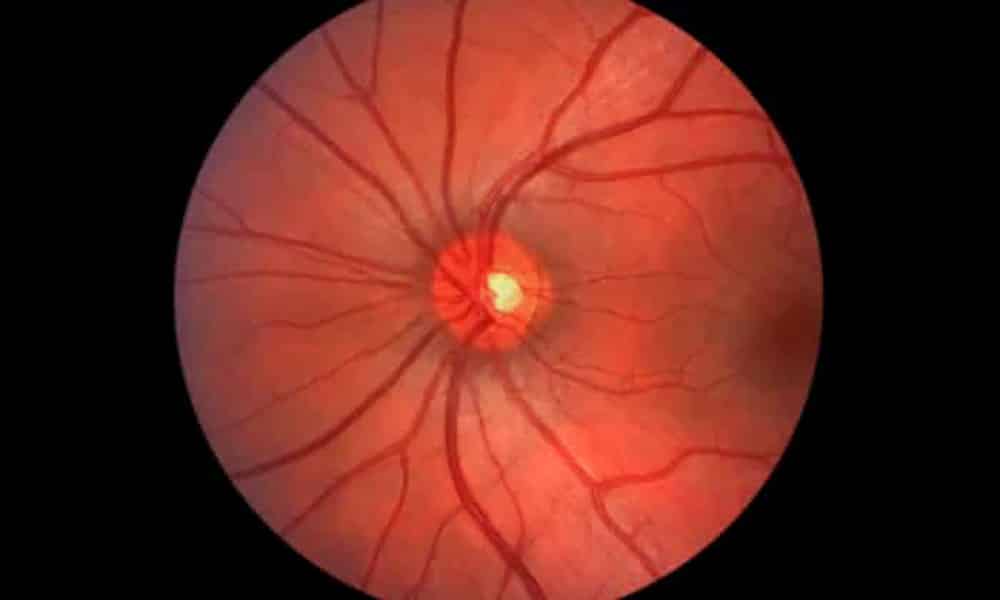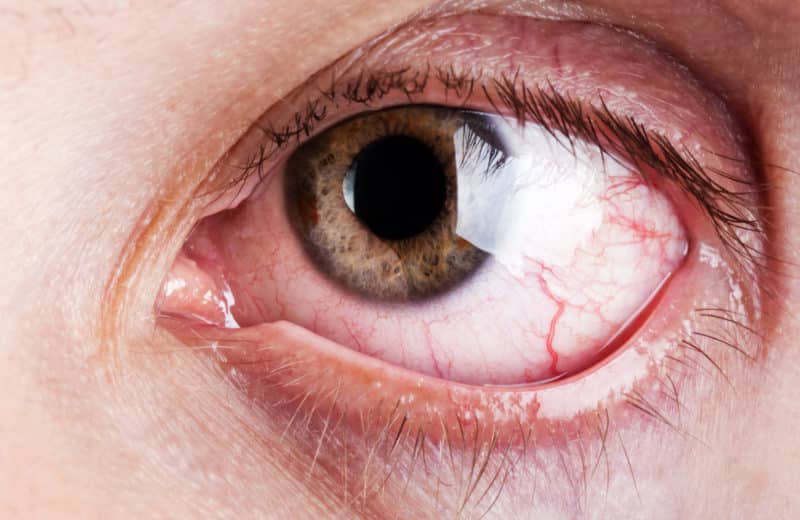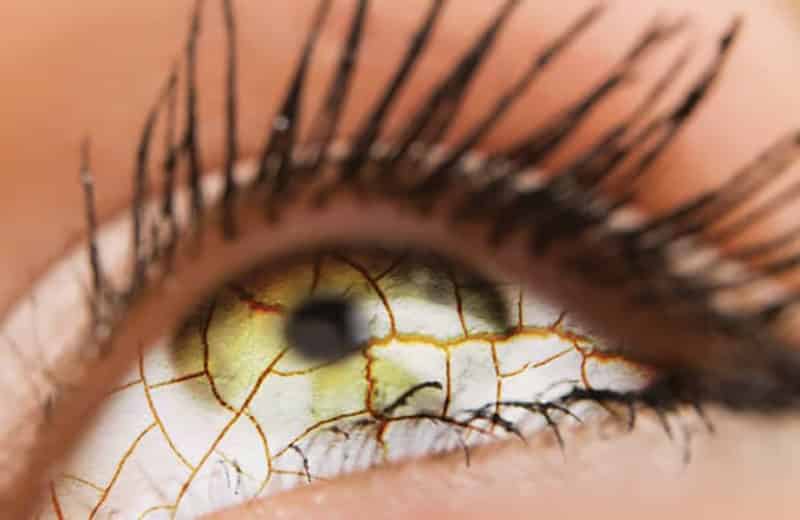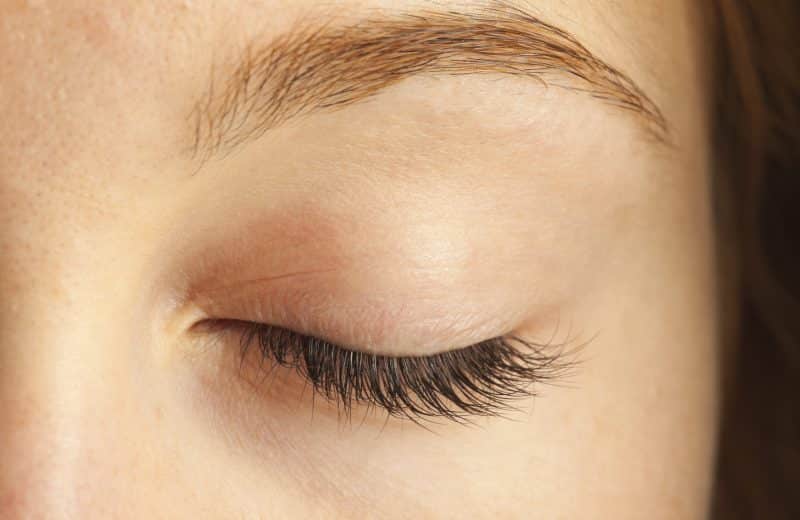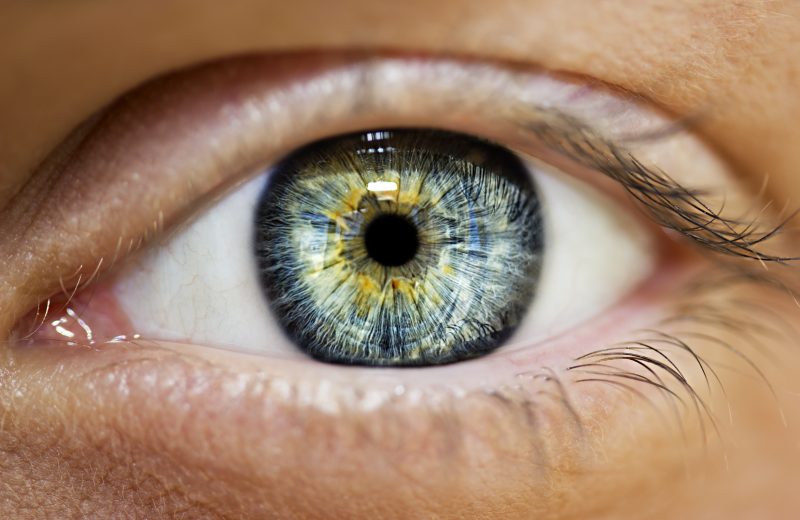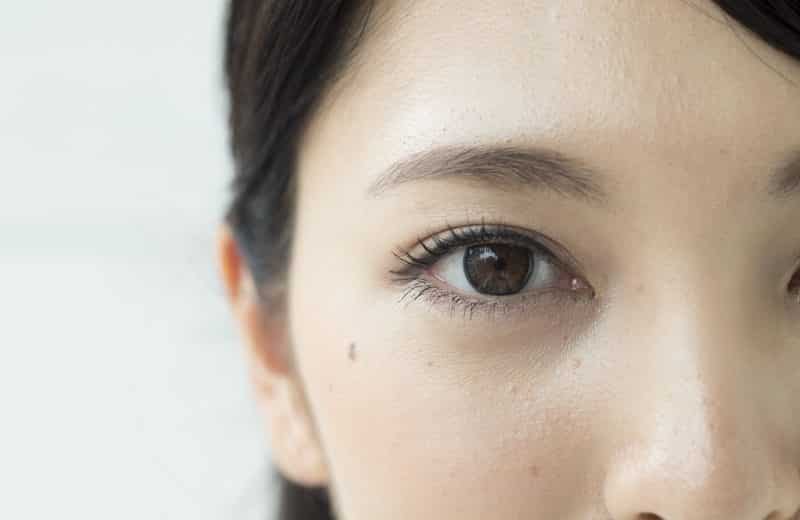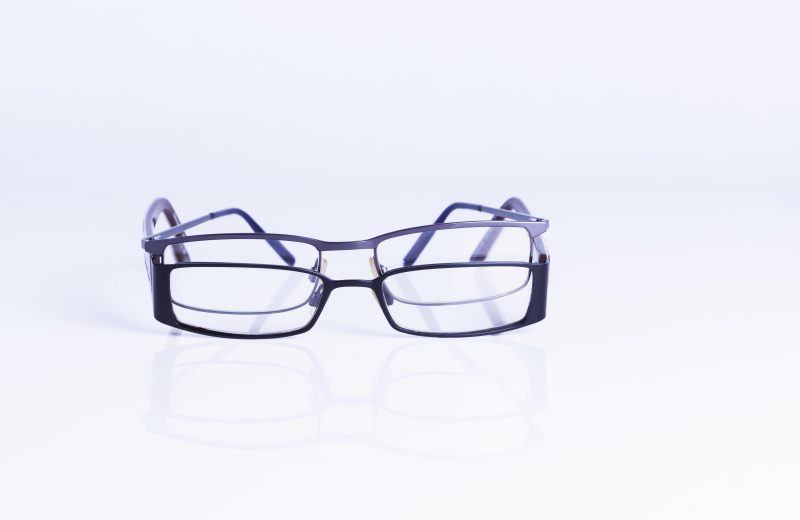Looking into your eyes can reveal chronic health conditions
Some time ago in high school, I accompanied my father for his yearly eye exam. It was mostly unremarkable, as I’m sure most teenagers find routine eye exams to be, but one moment stands out.
“I can see you’ve had a history of high cholesterol,” said the eye doctor, after a cursory glance into my father’s eyes.
“You can tell that?” I asked. “From his eyes?”
While it may be a cliché to say that eyes are the windows to the soul, nobody would contest that the eyes are, in fact, clear windows into the body. One of the best we have.
The retina, says Leonard Messner, OD, executive director of the Illinois Eye Institute, is an extension of the central nervous system and, therefore, an extension of the brain. “I think it’s the only part of the body where you can evaluate the vasculature unimpeded,” Messner says. “The blood vessels; the arteries; the veins within the body … we can see them directly through looking at the back of the eye.”
The eyes are “biomarkers of disease activity,” Messner says. They are literal lenses into the vascular system. Comprehensive eye exams can reveal signs of an extreme range of illnesses, from hypertension to cancer to multiple sclerosis.
Importance of eye exams
Your eyeglass prescription is only a fraction of what your doctor is trying to learn from a typical eye exam. For instance, the size of your pupils, both on their own and in relation to each other, can point to everything from diabetes to kidney disease.
By dilating your pupils, a physician can examine your optic nerve and retina and see evidence of chronic conditions like high blood pressure and diabetes. With high blood pressure, blood vessels narrow and weaken. Diabetes causes blood vessels to develop little areas of leakage and can signify that the nerve tissue is not receiving adequate blood supply.
“These are all signs of changes going on in other parts of the body,” says Ahmad Aref, MD, assistant professor and cataract/glaucoma surgeon at Illinois Eye and Ear Infirmary, University of Illinois at Chicago. “But often, you can’t see those changes anywhere besides the eye.”
With the introduction of the Affordable Care Act and Medicaid expansion, patients are coming in after long periods without medical care, and it’s not uncommon for them to leave with a diagnosis of a potentially chronic underlying systemic disease, Messner says.
There are some conditions that doctors are only recently starting to recognize in the eyes, such as Zika, a virus that was relatively unknown until the recent outbreak in Brazil, which can cause conjunctivitis. And Messner says there is big potential for using eyes as biomarkers of concussions.
“About 50 percent of the brain is somehow tied in to vision or the way that the eyes move together,” he says. “So it makes sense that tests of eye movement and vision should be very reliable indicators of a brain injury or a sports-related concussion.” The King-Devick test, a sideline screening for the evaluation of concussions, assesses brain activity through vision tests and has gained popularity as a diagnostic tool.
Taking care of your eyes
To protect your eyes, Aref stresses the importance of wearing sunglasses outdoors whenever possible to prevent UV light exposure. Wear goggles if you’re engaging in a potentially dangerous physical activity. Eat plenty of green leafy vegetables, which deliver beneficial antioxidants to your eyes. And put down the cigarettes—smoking can increase your risk of eye diseases, including cataracts and macular degeneration, Aref says.
It’s also important—for your eyes and your overall health—to have regular comprehensive eye exams. Yes, even if you have 20/20 vision. You never know what underlying issues may announce themselves when doctors have the chance to look deeply into your eyes.
More information about the link between eye health and overall health can be found on website for the Eye Health Life Health Coalition – a group of healthcare and community representatives housed at the Illinois Eye Institute – at www.eyehealthlifehealth.com.

